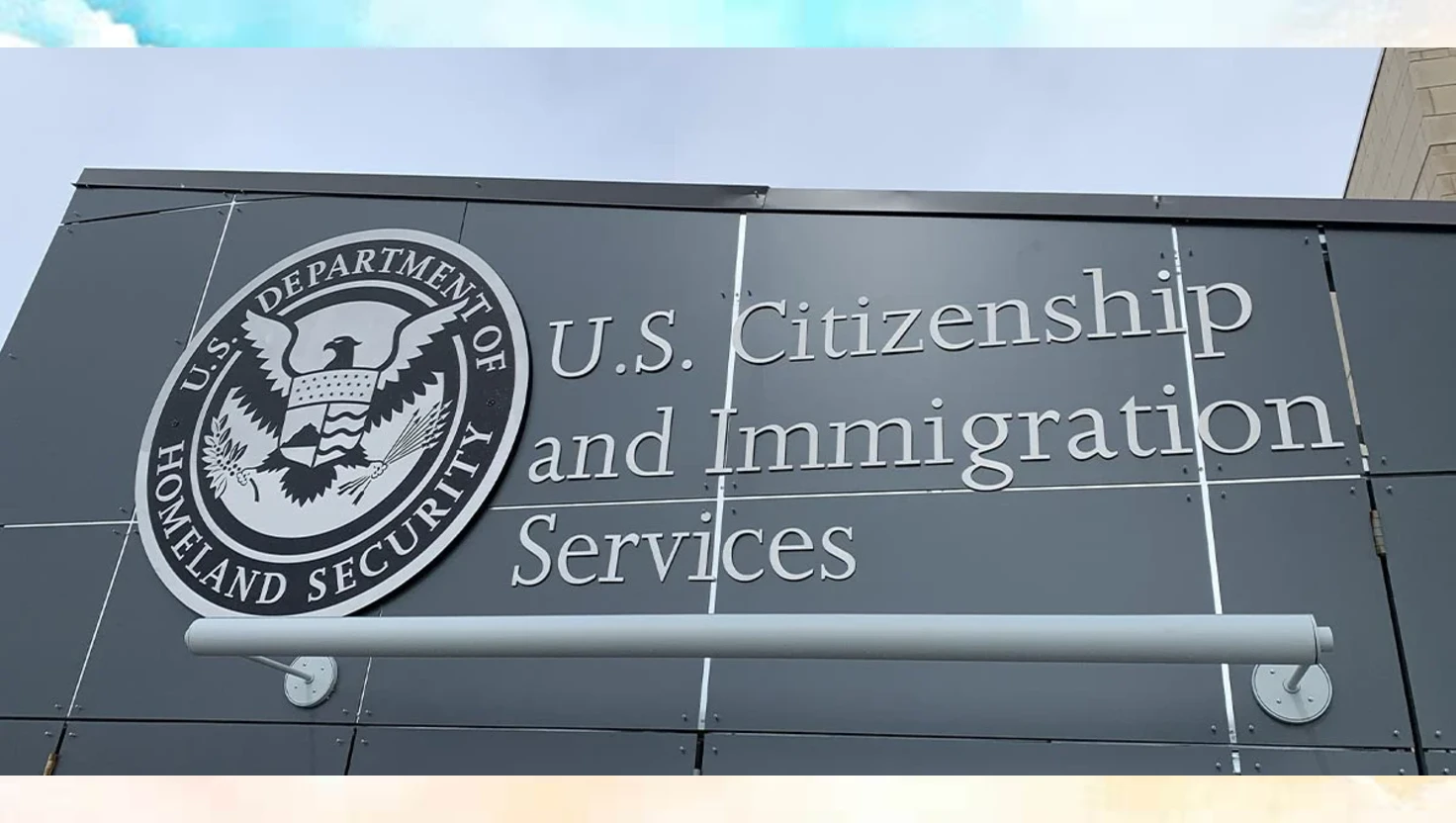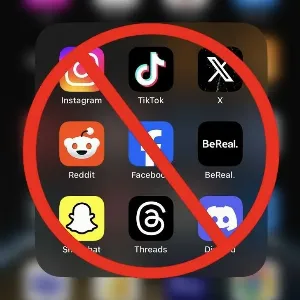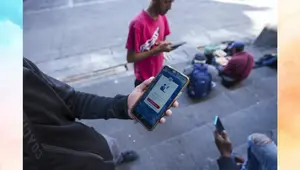U.S. begins monitoring foreigners' social media for 'antisemitic activity'

U.S. begins monitoring foreigners' social media for 'antisemitic activity'
US immigration authorities will now consider online antisemitic activity as grounds for denying visas and green cards, raising concerns among legal experts.
US implements new immigration rule to screen for antisemitic activity online
The United States has introduced a new immigration policy requiring officials to monitor the social media activity of foreign nationals for signs of antisemitic content. The measure, effective immediately, will be applied during immigration reviews for individuals seeking permanent residency, student visas, or other immigration benefits.
The Department of Homeland Security (DHS) announced the move on Tuesday, stating that expressions of support for antisemitic violence or terrorist organisations online could be used as grounds to deny immigration applications.
Policy expands digital surveillance in immigration vetting
Under the new guidance, officials at US Citizenship and Immigration Services (USCIS) will evaluate applicants’ public social media posts as part of the discretionary review process. The directive aims to identify any endorsement or promotion of antisemitic terrorism or associations with groups deemed to pose a threat to US national security.
According to DHS Assistant Secretary for Public Affairs Tricia McLaughlin, the policy reflects a stricter stance toward individuals believed to support extremist ideologies.
“There is no room in the United States for the rest of the world’s terrorist sympathisers,” McLaughlin said. “Anyone who thinks they can come to America and hide behind the First Amendment to advocate for antisemitic violence and terrorism—think again. You are not welcome here.”
The policy specifically targets individuals with ties to or support for groups such as Hamas, Palestinian Islamic Jihad, Hezbollah, and Ansar Allah (also known as the Houthis), all of which have been designated as terrorist organisations by the US government.
Grounded in executive orders on combating antisemitism
The new measure is aligned with several executive orders introduced during the administration of former President Donald Trump. These include “Combatting Anti-Semitism” and “Protecting the United States from Foreign Terrorists and Other National Security and Public Safety Threats.”
Officials say the guidance is intended to ensure that immigration policies reflect the country’s commitment to opposing religious hatred and protecting the Jewish community.
The policy applies to applicants seeking lawful permanent residency (green cards), international students, and foreign nationals affiliated with academic institutions. DHS has not yet clarified how long the review process will take or how data will be stored and used.
Legal and civil rights concerns emerge
Legal experts and civil liberties advocates have raised concerns that the measure could infringe on free speech protections and lead to arbitrary enforcement.
Speaking to NPR, immigration reporter Jasmine Garsd noted that the policy has sparked debate among legal scholars about how the US government will define “antisemitic activity” in the context of online speech, and whether such determinations could be applied inconsistently.
Critics argue that vague or overly broad definitions risk penalising individuals for political views or speech that may be protected under the First Amendment of the US Constitution. Although non-citizens have fewer protections than citizens in immigration contexts, courts have repeatedly recognised that certain rights apply regardless of immigration status.
Rachel Levinson-Waldman, a lawyer with the Brennan Center for Justice, said: “Making high-stakes immigration decisions based on social media content raises serious questions about accuracy, context, and due process.”
Concerns have also been raised about the potential use of artificial intelligence tools to monitor and interpret social media content at scale. Experts warn that such systems may struggle to accurately evaluate sarcasm, coded language, or cultural nuance, especially across languages.
Wider implications for digital rights and immigration
The policy is part of a broader shift in US immigration screening practices that began under President Barack Obama and accelerated under President Trump. Over the past decade, the Department of Homeland Security has increasingly incorporated digital data—including social media activity—into its vetting processes.
Since 2019, nearly all visa applicants to the US have been required to submit social media identifiers as part of their applications.
Advocates worry that the expansion of such policies could normalise surveillance-based immigration enforcement and chill public discourse among immigrants and their communities.
The DHS has stated that the new rule is aimed solely at national security threats and will be implemented within existing legal frameworks. However, the policy’s long-term implications for civil liberties, free speech, and digital privacy remain the subject of significant public debate.
Public interest groups have called for greater transparency, clearer definitions, and independent oversight to prevent potential abuse or discrimination in the policy’s application.
Next steps
As the policy takes effect, immigration lawyers and civil rights organisations are expected to monitor its implementation closely. Some have indicated they may challenge the rule in court if evidence emerges that it is being applied inconsistently or violates constitutional protections.
The DHS has not announced whether additional guidance or a formal rulemaking process will follow. In the meantime, affected applicants are advised to review their online presence carefully and consult legal counsel if concerned.
The United States has introduced a new immigration policy requiring officials to monitor the social media activity of foreign nationals for signs of antisemitic content. The measure, effective immediately, will be applied during immigration reviews for individuals seeking permanent residency, student visas, or other immigration benefits.
The Department of Homeland Security (DHS) announced the move on Tuesday, stating that expressions of support for antisemitic violence or terrorist organisations online could be used as grounds to deny immigration applications.
Policy expands digital surveillance in immigration vetting
Under the new guidance, officials at US Citizenship and Immigration Services (USCIS) will evaluate applicants’ public social media posts as part of the discretionary review process. The directive aims to identify any endorsement or promotion of antisemitic terrorism or associations with groups deemed to pose a threat to US national security.
According to DHS Assistant Secretary for Public Affairs Tricia McLaughlin, the policy reflects a stricter stance toward individuals believed to support extremist ideologies.
“There is no room in the United States for the rest of the world’s terrorist sympathisers,” McLaughlin said. “Anyone who thinks they can come to America and hide behind the First Amendment to advocate for antisemitic violence and terrorism—think again. You are not welcome here.”
The policy specifically targets individuals with ties to or support for groups such as Hamas, Palestinian Islamic Jihad, Hezbollah, and Ansar Allah (also known as the Houthis), all of which have been designated as terrorist organisations by the US government.
Grounded in executive orders on combating antisemitism
The new measure is aligned with several executive orders introduced during the administration of former President Donald Trump. These include “Combatting Anti-Semitism” and “Protecting the United States from Foreign Terrorists and Other National Security and Public Safety Threats.”
Officials say the guidance is intended to ensure that immigration policies reflect the country’s commitment to opposing religious hatred and protecting the Jewish community.
The policy applies to applicants seeking lawful permanent residency (green cards), international students, and foreign nationals affiliated with academic institutions. DHS has not yet clarified how long the review process will take or how data will be stored and used.
Legal and civil rights concerns emerge
Legal experts and civil liberties advocates have raised concerns that the measure could infringe on free speech protections and lead to arbitrary enforcement.
Speaking to NPR, immigration reporter Jasmine Garsd noted that the policy has sparked debate among legal scholars about how the US government will define “antisemitic activity” in the context of online speech, and whether such determinations could be applied inconsistently.
Critics argue that vague or overly broad definitions risk penalising individuals for political views or speech that may be protected under the First Amendment of the US Constitution. Although non-citizens have fewer protections than citizens in immigration contexts, courts have repeatedly recognised that certain rights apply regardless of immigration status.
Rachel Levinson-Waldman, a lawyer with the Brennan Center for Justice, said: “Making high-stakes immigration decisions based on social media content raises serious questions about accuracy, context, and due process.”
Concerns have also been raised about the potential use of artificial intelligence tools to monitor and interpret social media content at scale. Experts warn that such systems may struggle to accurately evaluate sarcasm, coded language, or cultural nuance, especially across languages.
Wider implications for digital rights and immigration
The policy is part of a broader shift in US immigration screening practices that began under President Barack Obama and accelerated under President Trump. Over the past decade, the Department of Homeland Security has increasingly incorporated digital data—including social media activity—into its vetting processes.
Since 2019, nearly all visa applicants to the US have been required to submit social media identifiers as part of their applications.
Advocates worry that the expansion of such policies could normalise surveillance-based immigration enforcement and chill public discourse among immigrants and their communities.
The DHS has stated that the new rule is aimed solely at national security threats and will be implemented within existing legal frameworks. However, the policy’s long-term implications for civil liberties, free speech, and digital privacy remain the subject of significant public debate.
Public interest groups have called for greater transparency, clearer definitions, and independent oversight to prevent potential abuse or discrimination in the policy’s application.
Next steps
As the policy takes effect, immigration lawyers and civil rights organisations are expected to monitor its implementation closely. Some have indicated they may challenge the rule in court if evidence emerges that it is being applied inconsistently or violates constitutional protections.
The DHS has not announced whether additional guidance or a formal rulemaking process will follow. In the meantime, affected applicants are advised to review their online presence carefully and consult legal counsel if concerned.

Denmark Proposes Social Media Restrictions for Children Under 15
Denmark plans to impose social media bans for users under 15, following Australia's lead in protecting children's online safety.
| 2025-12-16

US Expands Visa Screening for H-1B and H-4 Applicants
The US Department of State announces new online vetting for H-1B and H-4 visa applicants, requiring public social media profiles from December 15.
| 2025-12-16

US Seeks Collection of Social Media Handles on Immigration Forms
US immigration authorities propose a wider collection of social media handles from benefit applicants, raising concerns over privacy, speech rights, and oversight.
| 2025-07-30

OpenAI bans Chinese accounts working for social media surveillance company
OpenAI bans China-linked accounts accused of using ChatGPT to monitor protests abroad and send reports to Chinese authorities.
| 2025-07-30




